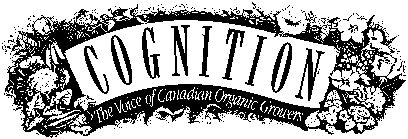

Cognition Index | Virtual Library
| Magazine Rack
Search
| Join the Ecological Solutions Roundtable
A Touch of Class
by Robin Guard
I’ve suddenly developed a passion for reading history, especially historical novels. Used to hate the subject as a kid, agreed it was bunk, but now I love reading about how people used to live. And I don’t seem to be alone, judging from the spate of Jane Austen movies and other costume dramas.
What I find especially fascinating about the past is the way people used to know their place. A writer like Jane Austen had absolutely no interest in the lives of the people below her own class. However, she had no objection to people of her own class (gentry) marrying somebody higher up (aristocracy). She was upwardly mobile.
Many countries still have flourishing class systems, ranging from the British House of Lords to India’s Untouchables. But overall, most of us have the idea that "a man’s a man for a’ that". Or we used to, because I sometimes think that we are about to revert to a feudal system.
The country that first regarded it a self-evident truth that all men are created equal now has the greatest inequality in the world. The wealth of the richest people there is almost inconceivable; single individuals are worth more money than some entire countries. In America the top one percent are worth more than the bottom sixty percent, and there are now millions who live in virtual fortresses, surrounded by security systems and with armed guards dedicated to protecting the haves from the have-nots. For all I know they have moats and drawbridges.
If someone had given you a million dollars ten years ago, you would now be worth two million, by doing no more than putting your money into the hands of any competent broker who knows his way around the incredibly buoyant stock market. By contrast, the number of people below the poverty line grows steadily, and Canadians are now more in debt to the banks than at any time in history.
So why am I meandering on about the class system in an organic growers’ magazine? It is because I suddenly realized that just about everything we sell from our little farm now goes to the upper classes, or as we say in Canada, the better-off. We are on friendly terms with many of the best chefs in Niagara, and they like what we send them. We mostly grow for ourselves, but we take pride in selecting the very best raspberries and blueberries and salads and sending them off to be eaten by the very best people, which means those who order meals that start at fifty bucks for a light lunch. We take our baskets into their spotless kitchens, and glance with awe into the dining-room where the napery gleams and the glasses sparkle. We try not to get manure on the deep carpets and resist the temptation to touch our forelocks as we back out.
Chefs are professionals who judge the produce they buy by taste, so they have long since identified organically grown food as the very best. They have made substantial contributions to the organic movement by organizing buying clubs, markets and foodfests. It is therefore with great temerity that I offer the opinion that this is all very well, but it is not really why we are dedicated to the organic movement.
We grow organically for four principle reasons. First, we believe the food is more nutritious because it is grown in fully living soil rich in all the trace elements needed for health, not in depleted soil fed with synthetic fertilizer. Second, we believe the food is purer because we don’t use chemicals not found in nature to "protect" the plants, chemicals which may have a direct relation to the steady rise in food allergies and new and incurable diseases. Finally, we are concerned with the gradual desertification of the world’s fertile lands, caused by making the soil produce more crops than it can on a sustainable basis. If we run out of fish because of unsustainable practices, we can eat something else. If we run out of soil, we’re all dead.
So while we may for immediate pragmatic reasons find that we can make the best living feeding the best people (chefs pay generously for good stuff), we are not making much impact on the great majority who scan the ads for the supermarket that claims the lowest price for food. Those flyers that arrive with your newspaper, with color photos of oranges in case you’ve forgotten what an orange looks like, project the idea that all food is the same and that you should shop for the best deal.
Oh, I said there were four main reasons for growing organically, didn’t I. Well, the fourth reason is that organic growers spend their earnings on their farms and on themselves, instead of contributing to the welfare of the banks and the chemical companies, who last time I looked seem to be doing very nicely without our help. In fact, if you’re careful, you can save enough money to make a very occasional trip to your local four-star restaurant, where you can eat some of the organic food you sold them and rub shoulders briefly with the upper classes. Now there’s glory for you.
Copyright © 1997. Robin Guard
Reprinted with permission. All rights reserved.
Info Request | Services | Become EAP Member | Site Map
Give us your comments about the EAP site
Ecological Agriculture Projects, McGill University (Macdonald
Campus)
Ste-Anne-de-Bellevue, QC, H9X 3V9 Canada
Telephone:
(514)-398-7771
Fax:
(514)-398-7621
Email: info@eap.mcgill.ca
To report problems or otherwise comment on the structure of this site, send mail to the Webmaster